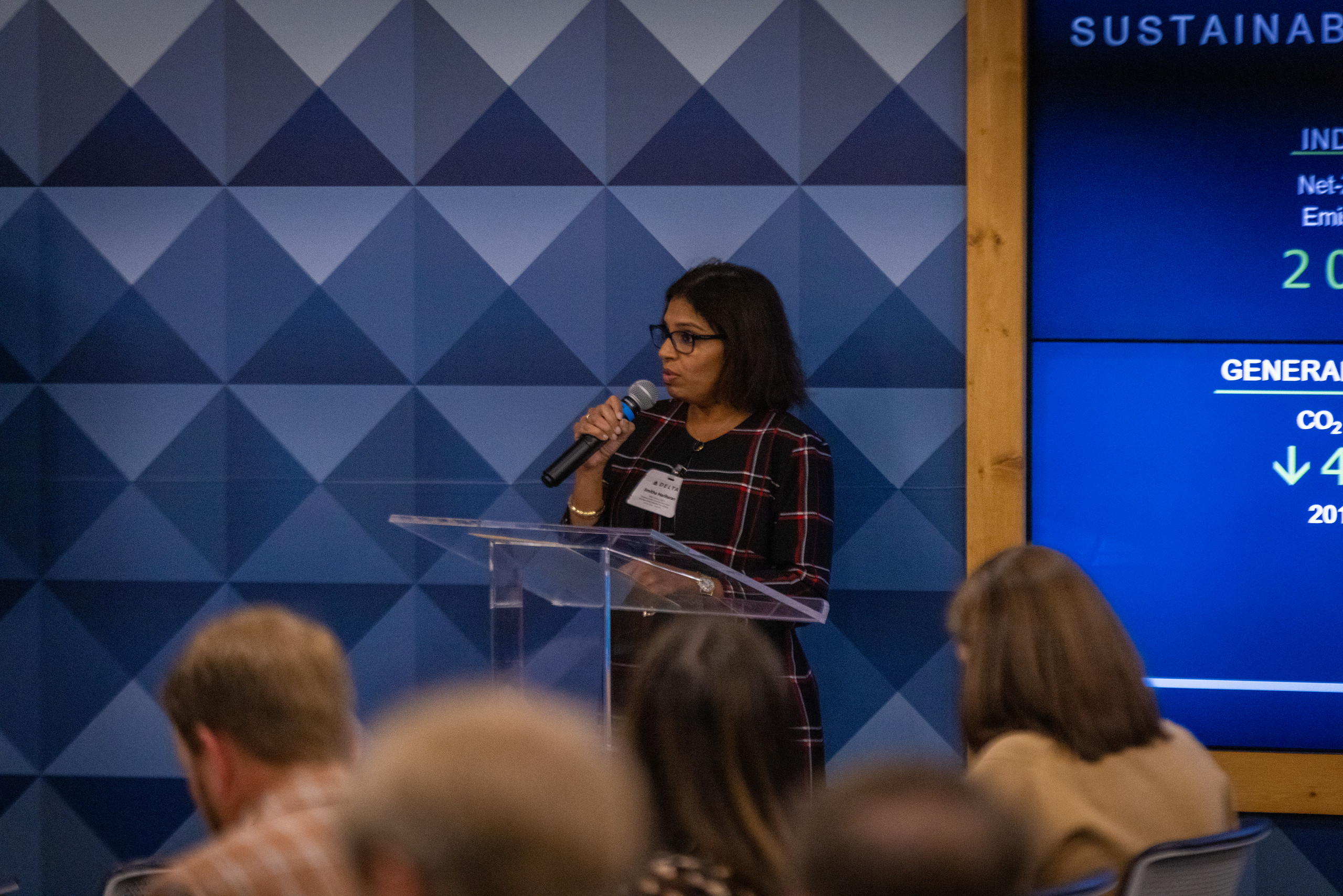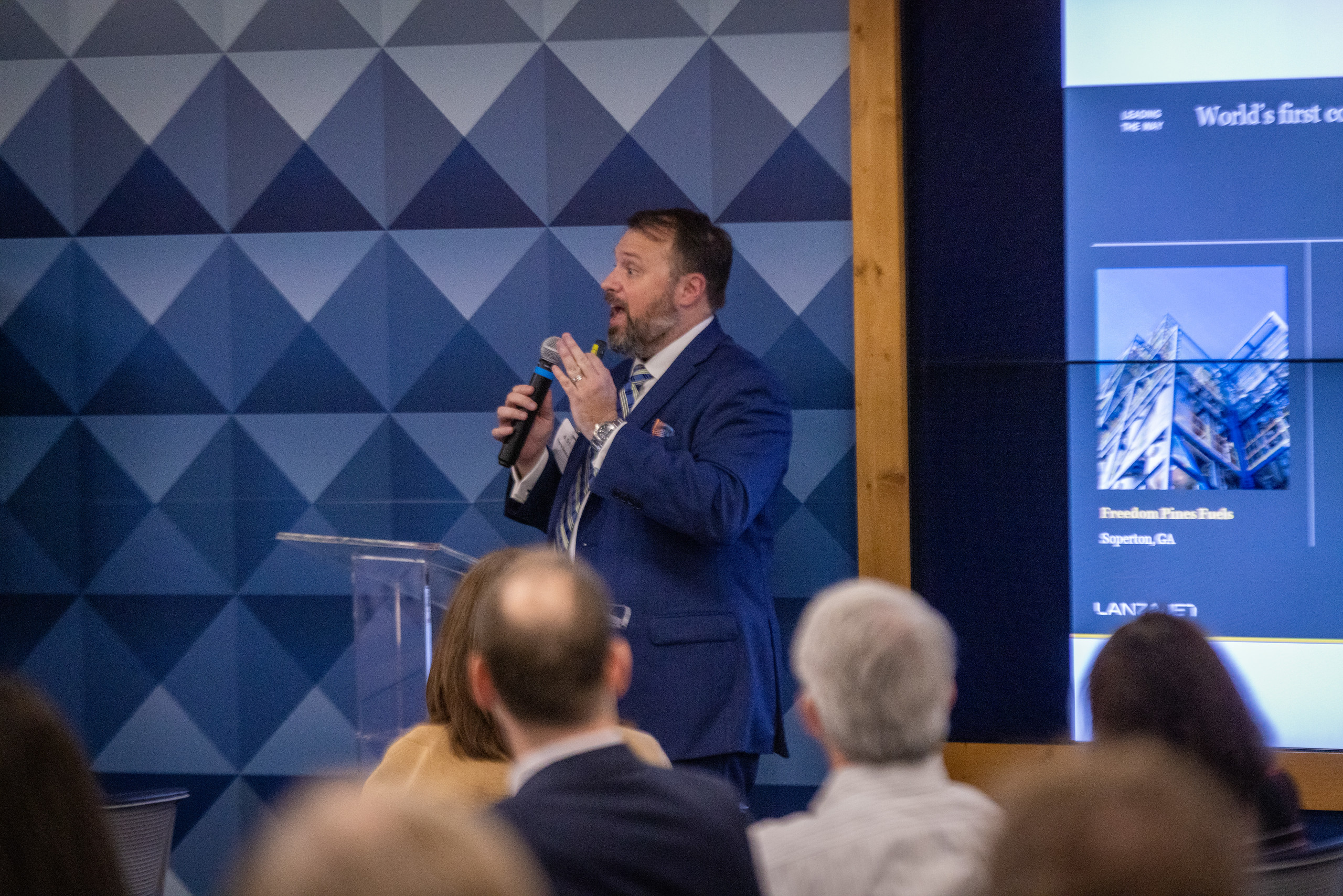Senate Advancing Forest Innovation in Georgia Study Committee Explores Opportunities in Sustainable Aviation Fuel Industry
What happened:
The Senate “Advancing Forest Innovation in Georgia” Study Committee held its third meeting on October 29, 2024, at Delta Headquarters, focusing on Sustainable Aviation Fuel (SAF) as a significant economic and environmental opportunity for Georgia’s forestry sector. Industry experts and state leaders discussed SAF’s potential to strengthen rural economies, reduce emissions, and position Georgia as a leader in sustainable aviation.
Why it matters:
SAF offers a pathway to reduce aviation’s carbon footprint and create high-value markets for Georgia’s forestry resources. The state’s ample woody biomass provides a prime SAF feedstock, with the potential to cut aviation emissions by up to 80% over its lifecycle, fostering rural growth and environmental benefits.


Pictured: Smitha Hariharan, VP, Gulfstream Aerospace // Dayne Delahoussaye, Director State and Local Affairs, LanzaJet
What they’re saying:
Delta Air Lines: Chief Sustainability Officer Amelia DeLuca highlighted SAF as Delta’s key to reaching net-zero by 2050, referencing Minnesota’s SAF Hub as an example of state incentives accelerating SAF development and urging Georgia to consider similar incentives.
“I really believe in the potential of Georgia to be a major player [in SAF]. It’s been exciting to see the Midwest come in. I think we’re all very excited to see the woody biomass conversation start to pick up in earnest because I think it’s just one that’s a little bit of an untapped potential,” said DeLuca.
RYAM: Director of Sustainability & External Affairs Ben Chambers emphasized RYAM’s SAF pilot projects in France and the desire to bring SAF production online in Georgia, benefiting rural communities and reinforcing the state’s aviation leadership.
“Given the potential scale of these projects, there are multiple billions of dollars in socioeconomic benefits for Georgia. This wouldn’t only be direct contributions from the investments and the operations, but there are broader economic development benefits to rural Georgia,” said Chambers.
Gulfstream Aerospace: VP Smitha Hariharan noted SAF’s role in business aviation and the economic benefits for Georgia’s rural economy, where Gulfstream’s presence is significant.
“Georgia really has a role to play. The feedstock is here. There is plenty of co-processing infrastructure already in place or could be incentivized, like pulp mills,” said Hariharan. “I think Georgia is in a great place to fulfill a lot of that SAF production.”
LanzaJet: Dayne Delahoussaye, Director of State and Local Affairs, shared plans for the Freedom Pines Fuels facility in Soperton, the world’s first ethanol-to-SAF plant, with a capacity of 10 million gallons annually.
“What makes forestry products interesting and attractive from a sustainability perspective is that we’re looking at using the sawdust, the tops, the trimmings… We’re trying to take whatever the stuff that you would otherwise throw away and not use, and to put that to good beneficial energy use,” said Delahoussaye.
The committee is chaired by Senate President Pro Tempore John Kennedy and is made up of Senate Majority Leader Steve Gooch, Senator Russ Goodman, Senator Frank Ginn, Senator Larry Walker, and Senator Sonya Halpern.

Challenge and opportunity:
Given SAF’s current production cost, 2-3 times higher than traditional jet fuel, industry leaders noted the importance of both state and federal incentives to bridge the cost gap. Georgia’s state policies will be crucial to attracting investment and building the SAF infrastructure needed to stay competitive. SAF demand creates a stable market for Georgia’s forestry products, providing jobs and resilience in forestry-dependent rural communities.
What’s next:
The committee will continue to explore innovative market opportunities to bolster Georgia’s position as the nation’s Number One State for Forestry while driving economic growth in rural communities.


